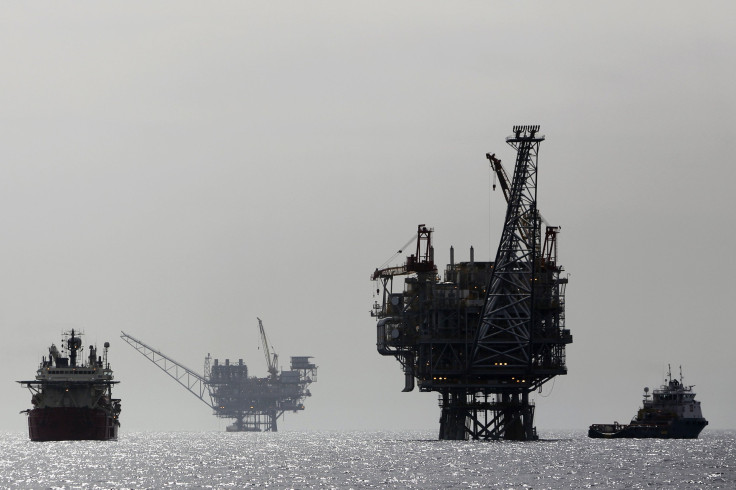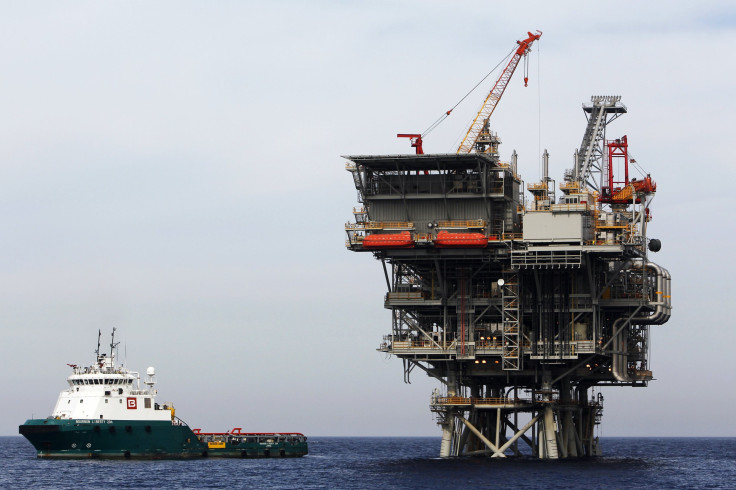Why Russia Is Looking To Secure A $1 Billion Energy Deal With The Palestinians: Russia's Latest Move In The Eastern Mediterranean

In Moscow this week on an official visit, Palestinian President Mahmoud Abbas reportedly talked to Russian Prime Minister Dimtry Medvedev about a $1 billion energy deal for oil in the Eastern Mediterranean Sea that would expand Russia's foothold in the region.
Though it’s unclear how far talks on the projects advanced and how serious they were, the agreement would include a massive natural gas project off Gaza’s coast, the Jerusalem Post reported Wednesday. But any agreement would be difficult as Abbas and his Fatah party control only the West Bank, while Hamas, a U.S.-designated terrorist organization, controls Gaza. Another major issue would be maritime boundaries with Israel.
In 2010, Houston-based energy company Noble Energy (NYSE:NBL) discovered a huge gas field off of Israel’s coast -- the largest natural gas find in the past 10 years. Gazprom and other Russian state-owned energy companies have looked to get a piece of the action. But so far, only Noble, Italy’s ENI (NYSE:E), France’s Total (NYSE:TOT), and even South Korea’s Kogas have been given the rights to explore in the area, known as the Levant Basin.
The Basin, which stretches from the coasts of Israel, Lebanon and Syria in the east to Cyprus in the west, has a mean undiscovered oil resource of 1.7 billion barrels of oil and an undiscovered natural gas resource of 122 trillion cubic feet. Both Cyprus and Israel are looking to become regional powerhouses through the export of oil and gas.

For decades, the Soviets (and now the Russians) have looked to strengthen their sphere of influence in the Eastern Mediterranean Sea as it is the only body of warm water that its navy can access from the Black Sea. The Eastern Mediterranean’s strategic importance is also viewed as an invaluable hedge against NATO’s encroachment from the West.
This is just the latest attempt by Russia to gain a foothold in the region. In December Russian state-controlled energy group Soyuzneftegaz struck a deal with the Syrian regime for rights to develop and produce oil and gas off Syria’s coast.
The agreement covers 2,190 square kilometers in the Mediterranean waters, at an initial cost of some $90 million, all assumed by Soyuzneftegaz.
With the U.S. withdrawing from Afghanistan and rebalancing its military attention to Asia (in tandem with Washington's inability to materialize its aggressive rhetoric against Syria’s Assad after almost three years of bloodshed), Russia wants to exploit what it perceives as a weakened U.S. position in the region.
Indeed, Russia has now become part of the problem in ending the three-year Syrian civil war, especially as it continues to provide military hardware to the brutal Assad regime.
Syria is one of the last Arab states still under Russian patronage, and President Vladimir Putin will do anything he can to maintain Russia’s muscle in the region. This is why Russia views the energy resources in the Eastern Mediterranean Sea as key in restoring its relevance -- and therefore influence -- in the region.
© Copyright IBTimes 2024. All rights reserved.












